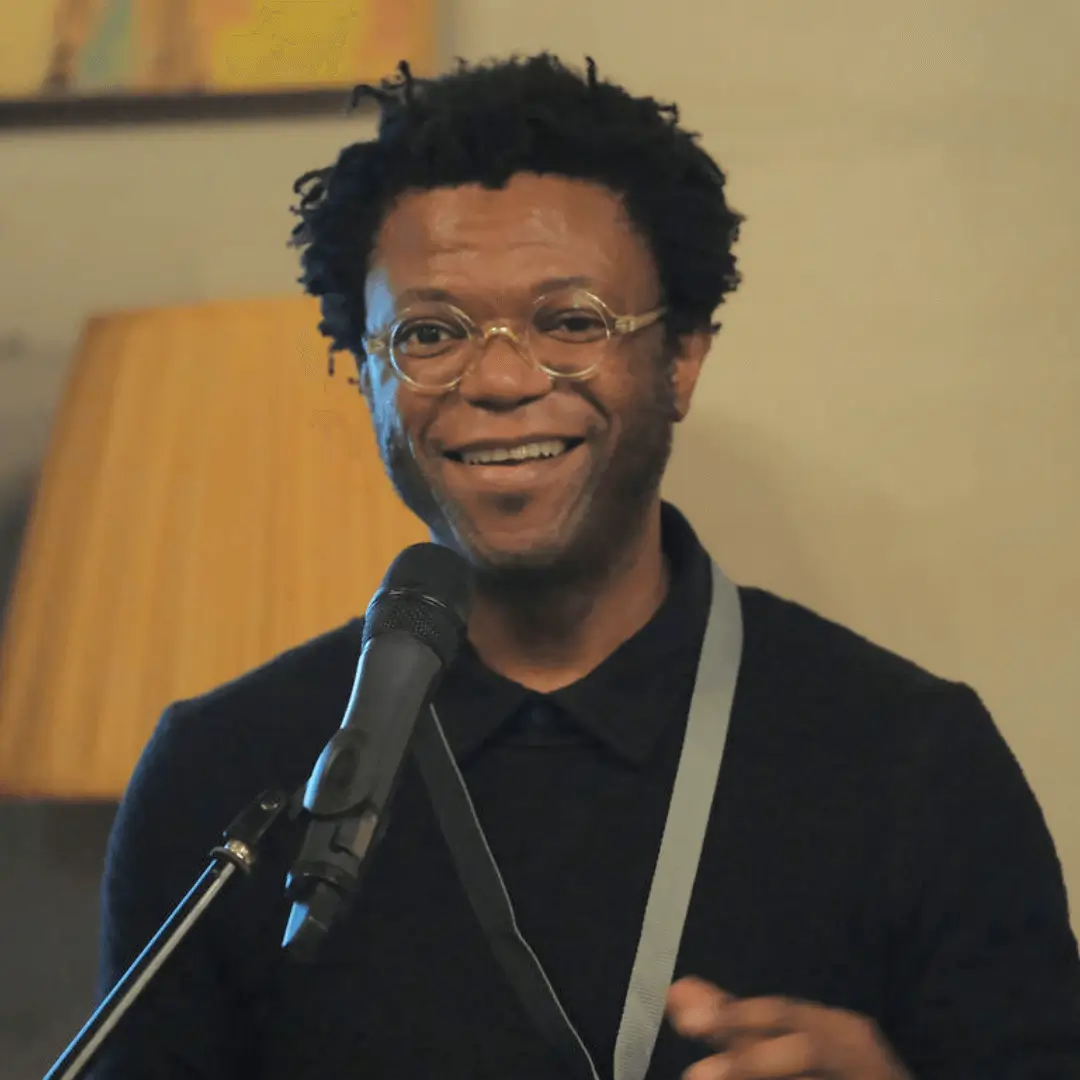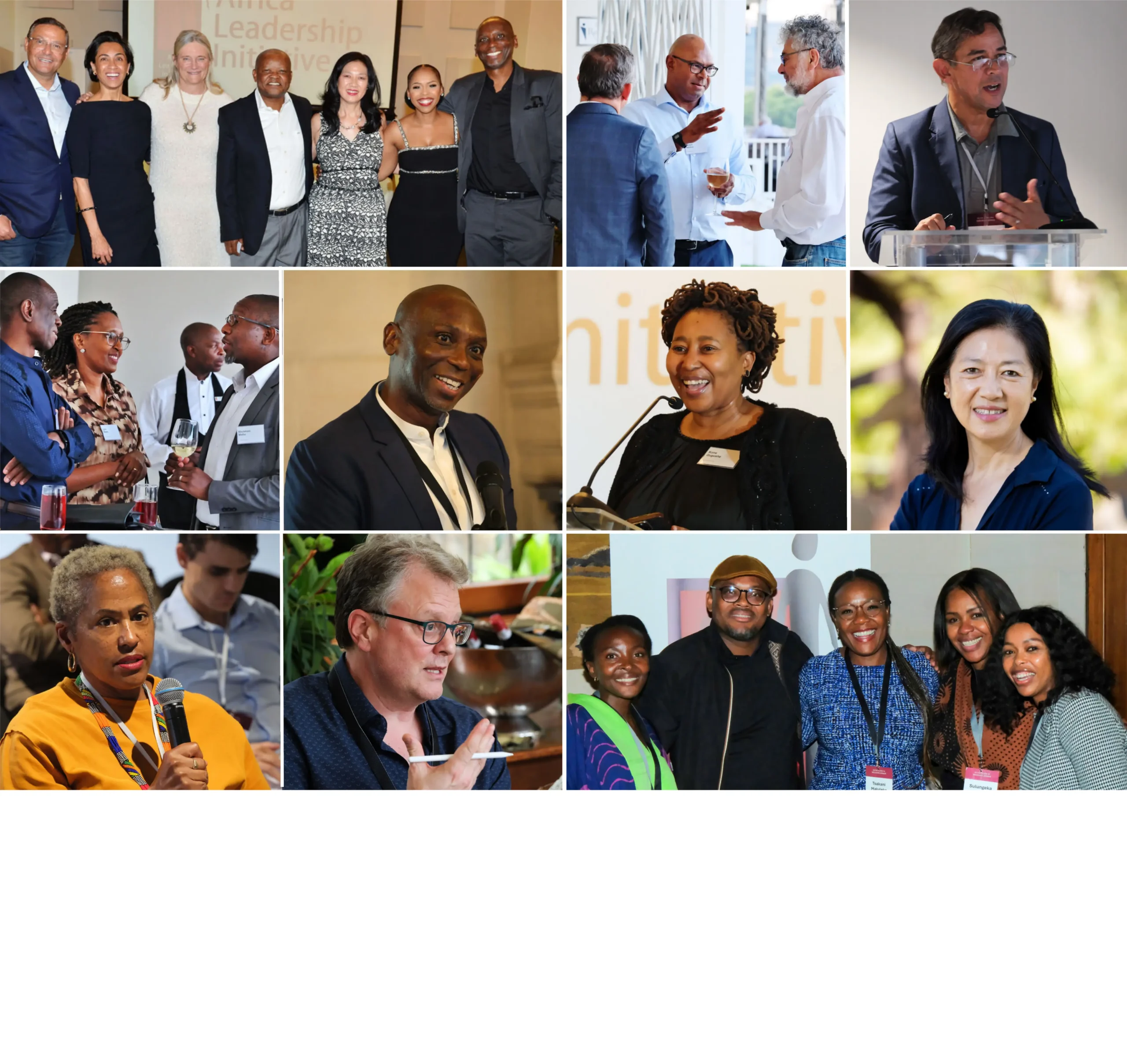
When Neo Muyanga (Class III: Seriti) received the 2025 Fleur du Cap Theatre Award for Best Sound Design, Original Music, Soundscape or Live Performance, the moment carried a profound sense of honour and validation. For Neo, this award is a celebration of the collective vision and passion that brought Manje! Manje! to life.
“It is an honour to receive the recognition for Manje! Manje! —it is a production we are all very proud to have made. I have been collaborating with Magnet Theatre for over 20 years now, so it represents a celebration of our shared artistic vision and our passion for telling stories that make us think and inspire us to take a second look at ourselves as a people.”
The pride in Neo’s words is unmistakable. This is a milestone for everyone involved—a tribute to years of creative partnership and a testament to the power of stories that challenge and inspire.
The Heartbeat of Protest and Song
Neo’s work is deeply rooted in the tradition of protest music, which he describes as both a sonic and social archive. He recalls the words of the legendary Abdullah Ibrahim (Dollar Brand), who claimed that South Africa is the only nation in the world to have won a revolution in four-part harmony. Neo reflects on this, saying, “Let us agree to leave aside a) whether what happened in South Africa was a revolution or not and b) whether we are the only nation to have done what we did through song or not (yes I am looking at you, Georgia!).” He clarifies, “Of course, he was making reference to the long-standing activist practice of bringing collective song and chant to every protest we stage in the public domain.”
Neo continues, “The concept of ‘four-part harmony’ is clearly also code for ‘the lessons we learned/strategies we adopted under duress as a former colonised people’. And despite the massive changes that have taken place here over the past 30 years, South Africa continues to be regarded as one of the most socially unequal societies in the world—activists of every generation continue to express their anger and frustration at perceived injustices in society through hurling collective song and chant to underscore their contrary position.”
“South Africa continues to be regarded as one of the most socially unequal societies in the world—activists of every generation continue to express their anger and frustration at perceived injustices in society through hurling collective song and chant to underscore their contrary position.”
He shares that he keeps a close watch on what happens during these acts of public musicking—his term for the active, communal making of music. “I continue to be fascinated by tracking what is occurring during these acts of public musicking (music is also a verb, an act we commit) to better understand and express what hidden realities this archive of song reveals about us as a society in flux.”
Authenticity and Curiosity
Neo’s creative journey spans physics, free jazz, Basotho war songs and baroque music. He credits his ability to move between traditions to a deep sense of self-awareness and the courage to express it. “Being authentic, to me, begins with having a deep knowledge and understanding of both who and what you are and moreover to having the courage to express that self. This project towards self-awareness of course has social dimensions—I was born and brought up in this country where our social and political history implicates us (imbricates us even) inside of what is called ‘code switching’—we necessarily speak multiple semantic as well as artistic languages.”
His experiences living and working in different countries across Africa and the world have only deepened his curiosity and ability to hold multiple perspectives at once.
Art as Diagnosis and Social Innovation
At the ALI SA Class XV Welcome Dinner, Neo spoke about his work at the Centre for the Less Good Idea, a multidisciplinary arts space in Johannesburg. There, he and other artists presented ‘The Unexpected City’, a series of events that told stories about Johannesburg beyond the usual clichés. “The presentations featured artists and inhabitants of a part of Joburg regarded by some as derelict, abandoned and even possibly post-apocalyptic and yet the presentations by the artists and locals we encountered related strategies of social innovation, collective improvisation and resilience.” Neo sees his art as a form of diagnosis—a way to help society see itself more clearly. “A key aim of my work is to perform a form of diagnosis of us as a society. I believe this can help us perceive how our patterns of behaviour and actions result in some of the social realities we inhabit and perpetuate. I believe the arts are a platform that can model strategies for how we might approach social challenges differently where outcomes can benefit all participants rather than concluding in a zero-sum game.”
He is especially passionate about bringing marginalised stories to the fore, believing that this can inspire more empathic and equitable communities.
Lessons in Leadership and Mentorship
Neo credits the ALI SA fellowship with shaping his approach to leadership and collaboration. “Some of the key insights I gleaned about leadership and collaboration through the fellowship is how to bring an open-mind to every debate about ideas and to trust that different registers of wisdom can be accessed when different perspectives are brought to bear on a common challenge or question.”
Mentorship is central to his identity as a composer and leader. “I see myself as belonging to a long lineage of social actors who have performed the same role I play, not just in this country but historically for humanity, as keepers of the record of us as a living archive. To do what I do well requires that I be able to pass on what I am learning to those who come after me so that they may also contribute to the subsistence of our communal record.”
A Message to Fellows and Future Artists
Reflecting on his address to the Class XV Fellows in February 2025, Neo said, “I felt very honoured to be invited to address the new cohort of ALI Fellows because I am aware that every one of them is a key player in the success of this country going forward. I hope what I shared was able to remind each of the Fellows of this fact and that we will continue to hold one another accountable and to keep making our best contributions towards the good society we want to live in.”
His advice to the next generation of African artists is heartfelt and direct: “I would ask that they remain true to themselves, curious and open to expressions of wisdom that come from unexpected quarters.”
“Some of the key insights I gleaned about leadership and collaboration through the fellowship is how to bring an open-mind to every debate about ideas and to trust that different registers of wisdom can be accessed when different perspectives are brought to bear on a common challenge or question.”
Neo Muyanga’s achievement is a reminder of the power of collaboration, curiosity and the courage to tell stories that matter. His journey is a call to all of us to listen more closely, think more deeply and imagine more boldly what our society can become.









